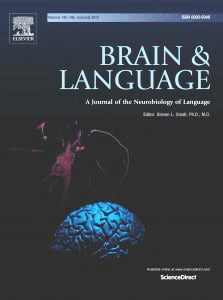Adolfo M. García

 The Society for the Neurobiology of Language is pleased to announce the 2024 Early Career Award recipient: Adolfo M. García
The Society for the Neurobiology of Language is pleased to announce the 2024 Early Career Award recipient: Adolfo M. García
The Early Career Award is generously sponsored by Brain and Language
Speech and language markers of neurodegeneration: Breakthroughs in automation, implementation, and diversity
Speaker: Adolfo M. García, 1 Cognitive Neuroscience Center, Universidad de San Andrés, Buenos Aires, Argentina, 2 Global Brain Health Institute (GBHI), University of California, San Francisco, San Francisco, CA, USA and Trinity College Dublin, Dublin, Ireland, 3 Departamento de Lingüística y Literatura, Facultad de Humanidades, Universidad de Santiago de Chile, Santiago, Chile
About Dr. Adolfo M. García
Adolfo García received his Ph.D. in Language Science in 2014 from Universidad Nacional de Cuyo (Argentina), after which he did a postdoc in Cognitive Neuroscience at the Institute of Cognitive Neurology (Argentina), and a fellowship on Brain Health at Global Brain Health Institute (UCSF, US). He specializes in the neuroscience of language, focusing on language embodiment, bilingualism, and speech biomarkers of brain health. Currently, he serves as Director of the Cognitive Neuroscience Center at Universidad de San Andrés (Argentina) and Associate Researcher at Universidad de Santiago de Chile (Chile).
Adolfo has examined how sensorimotor brain systems contribute to speech and language processes using multiple methodologies, including automated speech and language analysis and experimental paradigms in combination with MRI, fMRI, EEG, MEG, iEEG, and tDCS. He has provided spatiotemporal insights into the role of motor (e.g., frontostriatal) circuits in action-verb production and comprehension, face-recognition (e.g., right fusiform) regions in processing face-related nouns, and cerebello-cortical networks in processing social concepts. His research on bilinguals has revealed neurocognitive effects of age of language acquisition, language proficiency, and interpreting experience. As a creator of TELL, a speech testing app, he has also established speech markers of diverse brain diseases, including reduced semantic granularity in temporo-hippocampal atrophy models; and dysarthric patterns, atypical morphological choices, and altered action verb processing in frontostriatal atrophy models. He is also a co-founder of Include (a global network for crosslinguistic research on brain health), and Co-Principal Investigator of an NIH-funded project on speech biomarkers of dementia in both Latino and English-speaking individuals.
Abstract
Speech and language measures are crucial for neurodegeneration research. These assessments reveal deficits linked to disorder-specific brain atrophy and connectivity patterns, informing neurolinguistic models and clinical testing. Yet, the field is undermined by low scalability (with growingly uneven clinician-to-patient ratios), limited implementation (as scientific discoveries rarely evolve to clinical application), and soaring inequity (as highly vulnerable populations are understudied). Here I will introduce our team’s decade-long framework to tackle these challenges. First, I will describe our progress in automated speech and language analysis (ASLA), including mappings of speech timing alterations to superior/inferior frontal atrophy in non-fluent variant primary progressive aphasia, reduced semantic granularity to temporo-hippocampal alterations in Alzheimer’s disease, and abnormal conceptual processing to frontostriatal disturbances in Parkinson’s disease. Second, I will introduce our Toolkit to Examine Lifelike Language (TELL), a web-based app that turns ASLA into a clinical resource, offering real-time markers of motor speech, semantic memory, episodic memory, and emotional processing. Third, I will present our efforts to foster equity in language-based brain health research, including large cross-cultural projects (linking high- and low/middle-income countries) and the Include network (integrating 80 sites across five continents for cross-linguistic studies). In brief, through this work, we aim to foster a scalable glocal philosophy to translational neurolinguistics.